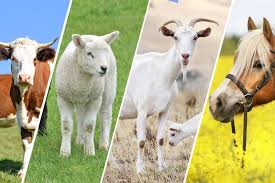PhD in Animal Sciences: Introduction, Admission, Registration, Eligibility, Duration, Fees, Syllabus 2024

Introduction:
A PhD in Animal Sciences offers an in-depth exploration of the biological, physiological, and sociological factors affecting animal biology. From livestock management to wildlife conservation, this program encompasses a broad spectrum of research areas, preparing students for a career in academia, industry, or government.
Admission Process:
- Application: Submit a detailed application, including personal statements and research interests.
- Transcripts: Provide transcripts from all post-secondary institutions attended.
- Letters of Recommendation: Obtain letters from academic or professional references.
- Research Proposal: Some institutions require a proposal outlining potential research topics.
- Interview: An interview with faculty members may be part of the selection process.
Eligibility:
- Master’s Degree: A master’s degree in a related field is typically required.
- GRE Scores: Many programs require GRE scores, although some may waive this requirement.
- Research Experience: Prior research experience in animal sciences is highly beneficial.
Completion Time:
A PhD in Animal Sciences can take anywhere from 4 to 6 years to complete, depending on the research project and the student’s progress.
Career Opportunities:
- Research Scientist: Conduct research in academic, government, or industry settings.
- Professor: Teach and guide the next generation of animal scientists.
- Policy Analyst: Influence public policy related to animal health and welfare.
- Industry Consultant: Provide expertise to animal-related businesses.
Syllabus:
- Core Subjects: Genetics, nutrition, physiology, and animal welfare.
- Research Methodology: Quantitative and qualitative research methods.
- Specializations: Choose from areas like ethology, biotechnology, or ecology.
Internship Opportunities:
- Research Institutions: Gain experience in cutting-edge research projects.
- Industry Placements: Work with leading companies in animal health or nutrition.
- Government Agencies: Learn about regulatory aspects and policy development.
Scholarships and Grants:
- Teaching Assistantships: Provide teaching support for tuition waivers and stipends.
- Research Assistantships: Fund your research and receive a stipend.
- External Fellowships: Apply for funding from scientific societies or foundations.
FAQs:
What can I research?
Opportunities range from animal genetics to environmental impacts on animal health.
Is funding guaranteed?
Funding varies by program but is often available through assistantships or grants.
Can I study part-time?
Some programs offer part-time options, but this may extend the completion time.
